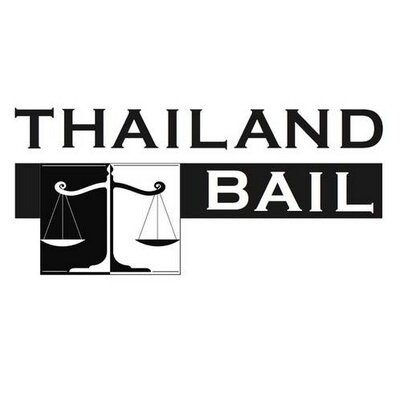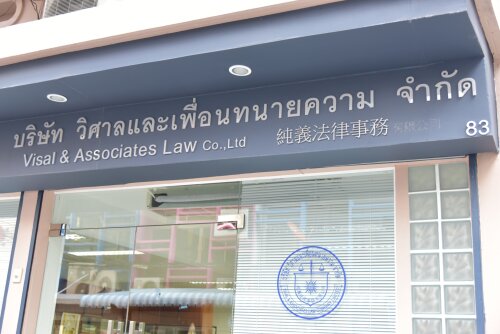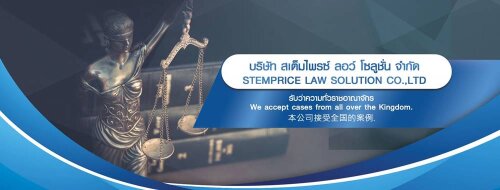Best Juvenile Law Lawyers in Bangkok
Share your needs with us, get contacted by law firms.
Free. Takes 2 min.
List of the best lawyers in Bangkok, Thailand
About Juvenile Law in Bangkok, Thailand
Juvenile Law in Bangkok, Thailand, is a specialized area of legal practice focusing on issues involving individuals under the age of 18. The objective of this law is to ensure the protection, welfare, and rehabilitation of minors who are involved in legal matters. The Juvenile and Family Court in Thailand has jurisdiction over these cases, ensuring that decisions consider the best interests of the juvenile. The legal system emphasizes rehabilitation over punishment, with a focus on protecting children’s rights, offering guidance, and providing educational opportunities intended to reintegrate young offenders back into society.
Why You May Need a Lawyer
There are several circumstances under which individuals may require legal assistance in Juvenile Law in Bangkok. Parents or guardians might need a lawyer if their child is accused of a crime, not attending school regularly, or involved in a family court case such as custody or adoption. Legal assistance is crucial even for minors who are victims of crimes, ensuring their rights are protected and they receive appropriate support. Lawyers knowledgeable in this field can provide guidance, represent juveniles in court, and offer advice on the legal rights of minors and their families.
Local Laws Overview
In Bangkok, Juvenile Law is governed by the Juvenile and Family Court Procedure Act. Key aspects include treating minors differently than adults in legal proceedings, focusing on rehabilitation, and providing a legal framework tailored to juvenile cases. Privacy is respected, as hearings are typically closed to protect juveniles' identities. The system limits detention and incarceration, using them only as measures of last resort. The laws also encourage parental involvement and the use of mediation as a means of resolving family disputes involving minors.
Frequently Asked Questions
What is the age of criminal responsibility in Thailand?
In Thailand, the age of criminal responsibility is 10 years. However, children between 10 and 15 years cannot be considered liable for criminal punishment but can be subject to various types of corrective measures.
What happens if a minor commits an offense in Bangkok?
When a minor commits an offense, the case is handled through the Juvenile and Family Court, where the focus is on rehabilitation rather than punishment. Various measures such as counseling, probation, and diversion programs may be employed instead of incarceration.
Are juvenile court hearings public in Bangkok?
No, juvenile court hearings in Bangkok are not public. They are closed to ensure the privacy and protection of the juvenile’s identity and wellbeing.
Can a minor be tried as an adult in Bangkok?
Generally, minors are not tried as adults in Thailand. However, in cases involving serious crimes committed by older juveniles, the court may decide differently, considering factors such as the nature of the crime and the juvenile's age.
What types of legal issues are handled by the Juvenile and Family Court?
The Juvenile and Family Court addresses issues involving juvenile delinquency, family disputes such as custody and adoption, child protection cases, and other matters related to the welfare of children and adolescents.
What rights do juveniles have during legal proceedings?
Juveniles have the right to legal representation, the right to privacy, and the right to be treated with dignity and respect throughout all legal proceedings. They also have the right to have their guardians present.
How long can a minor be detained in Bangkok?
Detention is used as a last resort. If necessary, detention should be as short as possible, and alternatives are usually sought promptly to prioritize the minor's rehabilitation.
What is diversion in juvenile cases?
Diversion refers to bypassing the formal judicial system by offering alternatives such as counseling, community service, or educational programs aimed at reforming behavior and avoiding a formal record.
Can a minor's criminal record be expunged in Bangkok?
Yes, under certain conditions, a juvenile record can be sealed or expunged in Bangkok, allowing the individual to avoid the consequences of a criminal record into adulthood, promoting reintegration into society.
Are parents involved in juvenile cases?
Yes, parents or guardians are often involved in juvenile cases, supporting the child and ensuring the legal process considers their best interests. They are also held responsible for their child's actions to an extent.
Additional Resources
If you are in need of further assistance or information related to Juvenile Law in Bangkok, consider reaching out to the following resources: - The Juvenile and Family Court of Bangkok - Ministry of Justice: Department of Juvenile Observation and Protection - Thailand Association of Child and Youth Protection - Legal aid services and local bar associations specializing in family and juvenile law
Next Steps
If you require legal assistance in Juvenile Law, it’s advisable to consult with a lawyer specializing in this area. Start by researching local legal services or contacting a law firm with experience in juvenile cases. Ensure you gather all relevant documents related to your case and be prepared to discuss the details thoroughly. Timely legal intervention is critical in handling cases involving minors effectively and compassionately.
Lawzana helps you find the best lawyers and law firms in Bangkok through a curated and pre-screened list of qualified legal professionals. Our platform offers rankings and detailed profiles of attorneys and law firms, allowing you to compare based on practice areas, including Juvenile Law, experience, and client feedback.
Each profile includes a description of the firm's areas of practice, client reviews, team members and partners, year of establishment, spoken languages, office locations, contact information, social media presence, and any published articles or resources. Most firms on our platform speak English and are experienced in both local and international legal matters.
Get a quote from top-rated law firms in Bangkok, Thailand — quickly, securely, and without unnecessary hassle.
Disclaimer:
The information provided on this page is for general informational purposes only and does not constitute legal advice. While we strive to ensure the accuracy and relevance of the content, legal information may change over time, and interpretations of the law can vary. You should always consult with a qualified legal professional for advice specific to your situation.
We disclaim all liability for actions taken or not taken based on the content of this page. If you believe any information is incorrect or outdated, please contact us, and we will review and update it where appropriate.
















